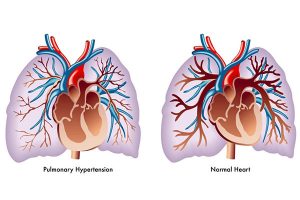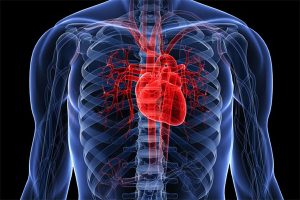Heart failure occurs when the heart can not perform its natural task of delivering food and oxygen to tissues. In heart failure, heart muscle and heart cavities are often dilated in most cases, but in some diseases, the heart muscles may become thick and rigid, in which case the heart can not function properly and heart failure develops. In these cases, the heart’s main cavities, which carry the task of pumping the blood (ventricles), do not fill well and disrupts the blood supply.
Defecation is a good measure for cardiac function assessment and is used to classify all types of heart failure. The normal leakage fraction is 50% high, indicating that at each heart attack, you should be able to empty more than half of your blood. Of course, as previously mentioned, heart failure occurs with a normal leakage fraction due to the excessive stiffness of the heart muscle.
The term congestive heart failure is used for cases of excessive accumulation of fluid in tissues due to heart failure, including in the organs, the abdomen, the liver, and the gastrointestinal tract.
The disease may affect the right side of the heart, the left side of the heart, or both, but usually starts from the left.
Types of heart failure
Type of disease
Description
Failure to the left causes more fluid to accumulate in the lungs and causes shortness of breath
The right heart failure is the accumulation of fluid in the abdomen and extremities, causing swelling of the abdomen and limbs.
Systolic dysfunction, the heart does not contract well, and blood does not go out of the heart with enough strength.
Diastolic dysfunction is a heart-shaped heart filling heart
Any heart disease that is not treated well can lead to heart failure. Some of the most important causes are:
High blood pressure
Stenosis or cramping of the arteries
Valvular disease (valve stenosis or valve failure)
Inflammation of the heart muscle
Heart rhythm disorders
Congenital heart disease
Unfortunately, all cases that lead to heart failure are not reversible, but in many cases, appropriate treatment can control the symptoms of the disease, improve the quality of life, and increase the life span of the patient.
A way to prevent heart failure, lifestyle changes and control and prevention of conditions that lead to heart failure, such as coronary artery disease, high blood pressure, high blood lipids, diabetes, obesity, alcohol consumption, obstructive sleep apnea, and so on.
Symptoms and symptoms of heart failure:
Symptoms and symptoms of heart failure include:
Shortness of breath when you are at work or lying down
Weakness and anxiety
Swelling of the legs
Fast or irregular heartbeat
Inability to work
Coughing and wheezing or without white or pink cough
Increase urine overnight
Swelling
Sudden weight gain
Reduce appetite and nausea
Memory impairment and concentration
Sudden and severe shortness of breath
Chest pain
You may not have all of the above symptoms in one patient, and each patient may experience only some of the above symptoms. If you have any of the above symptoms, check with your doctor for advice.
Complications of heart failure:
As previously stated, it is the duty of the heart to deliver oxygen and food to all tissues and organs of the body, therefore, heart failure with disturbance in this practice can disrupt the functioning of most organs of the body. The severity and severity of the disease depends on the severity of the underlying illness, the general health of the body and the age of the patient. Some of the side effects of heart failure are:
Kidney Damage and Kidney Failure: Cardiac failure, especially if not treated properly, can lead to kidney damage by reducing renal blood flow, and the patient may need dialysis.
Heart valve problems: Proper functioning of the heart valves makes the blood flow inside the heart correctly. Majority of heart cavities or abnormal increase in intracardiac pressure with disturbance may interfere with the normal functioning of the valves.
Cardiac rhythm disturbances: The normal rhythm of the heart may be impaired in the heart failure and the patient has a heart beat or abnormal heartbeat.
Liver damage: Liver damage to the liver on the one hand, as well as liver congestion on the other hand, can lead to damage to the liver and even gradually develop cirrhosis and severe liver failure.
Unfortunately, in some patients, symptoms do not change or worsen despite proper treatment, and heart failure can be fatal in these patients. In these cases, if the patient’s clinical conditions allow, the patient may be a candidate for insertion of an auxiliary device or cardiac transplant.
Disease control methods:
Non-pharmacological methods: Among non-prescriptive methods, the most important is diet. On the diet, the most important point is the control of salt intake. For further explanation, it is best to refer to the diet section of this site. Controlled physical activity is also recommended in heart failure patients (heart rehab). Also, some types of heart pacemakers, intra-cardiac shock devices, auxiliary ventricles and, if necessary, specialist doctors of some types of cardiac surgery can eventually help the heart transplant in some patients.
Pharmaceutical methods: Drug therapy is the most important and effective method for controlling heart failure and is the first step in treatment. Proper drug treatment is best initiated at the earliest opportunity and immediately after diagnosis, even if the patient has no symptoms. Patients need to know their medication and have full knowledge about how to use it properly.
Pharmaceutical treatments for patients with heart failure are three categories:
Drugs that improve symptoms and prolong the life of the patient.
Drugs that control symptoms but have no effect on life expectancy.
Booster medications that are prescribed if needed or nutritional deficiencies.
What time to cook


